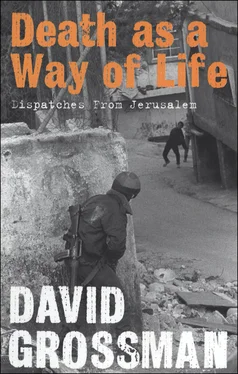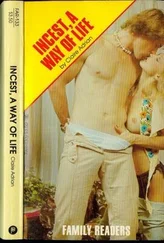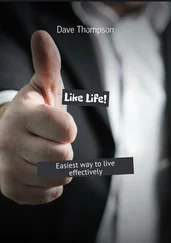David Grossman - Death as a Way of Life
Здесь есть возможность читать онлайн «David Grossman - Death as a Way of Life» весь текст электронной книги совершенно бесплатно (целиком полную версию без сокращений). В некоторых случаях можно слушать аудио, скачать через торрент в формате fb2 и присутствует краткое содержание. Год выпуска: 2013, Издательство: Bloomsbury Publishing, Жанр: Прочая документальная литература, на английском языке. Описание произведения, (предисловие) а так же отзывы посетителей доступны на портале библиотеки ЛибКат.
- Название:Death as a Way of Life
- Автор:
- Издательство:Bloomsbury Publishing
- Жанр:
- Год:2013
- ISBN:нет данных
- Рейтинг книги:5 / 5. Голосов: 1
-
Избранное:Добавить в избранное
- Отзывы:
-
Ваша оценка:
- 100
- 1
- 2
- 3
- 4
- 5
Death as a Way of Life: краткое содержание, описание и аннотация
Предлагаем к чтению аннотацию, описание, краткое содержание или предисловие (зависит от того, что написал сам автор книги «Death as a Way of Life»). Если вы не нашли необходимую информацию о книге — напишите в комментариях, мы постараемся отыскать её.
Death as a Way of Life — читать онлайн бесплатно полную книгу (весь текст) целиком
Ниже представлен текст книги, разбитый по страницам. Система сохранения места последней прочитанной страницы, позволяет с удобством читать онлайн бесплатно книгу «Death as a Way of Life», без необходимости каждый раз заново искать на чём Вы остановились. Поставьте закладку, и сможете в любой момент перейти на страницу, на которой закончили чтение.
Интервал:
Закладка:
And so it was.
But never to this extent.
You interrupt the conversation for a moment, telling your wife that you forgot a dish in the oven. I hear your children laughing in the background. Your home. Things television doesn’t show.
Afterward you say, Look, you and I, we represent two overly emotional peoples. For that reason, so much depends on how our leaders lead us. For example, you say, I think that we Palestinians have to change the way we fight. I don’t believe it’s good to send children to throw stones, nor adults either. We need to find a nonviolent mode of struggle, a peaceful struggle, because the loss of life is terrible. But also because our behavior threatens you, and you respond overaggressively, not willing to listen to us. We need to turn to peaceful demonstrations, you say — maybe that way we can get across to you what we feel. But you, too, must change. You shouldn’t exaggerate the situation as if it is a threat to your existence.
You’re certainly right about that, I reply. I see that this brief conflict has revealed just how deep our existential fear is. That, perhaps, is the Palestinian tragedy, that you are facing a tough and complicated partner (one convinced it is the meekest, most malleable, most merciful partner there is). You have a partner with a history so difficult that nothing in the universe can give it a real sense of security and strength.
If you were more confident, you say, you wouldn’t use such heavy fire against demonstrators. Just think of what massive power you use against us.
“The peace of the brave,” I say, quoting Arafat.
Ah, you suddenly sigh. Politicians are ruthless.
Are you managing to get anything done these days? I ask.
How can I? Who can concentrate?
You could at least state publicly the things you tell me.
No, and certainly not as I once could. But I’m sure that most of the Palestinian public thinks as I do. Listen, people here understand that peace is a necessity. Not everyone here is pleased with all that’s happening. We have lost more people than you have, but I know that the Israeli sense of loss is just as great. We feel surrounded, under siege, but so do you. We must break free of this despair and this immobility, because, at the end of the day, we are going to have to live here together, and we can’t kill each other indefinitely. We’ll live here together, I say, and in the end we’ll also make peace, but it will be such a frail peace, always on the verge of being shattered. And underneath there will always be that volcano, and it will erupt again and again. Hundreds of years may pass before we have, if ever, a peace similar to the one between England and France, or between France and Germany. But what am I doing planning the centuries to come, when the question is what to do now, today?
Today we will do nothing, you say. Today both your and our blood is boiling. We have to wait a few days and hope that things will calm down a bit. Afterward we’ll decide what we can do.
And so, agreeing that we will speak more frequently, we bid each other farewell.
Stop Mumbling
November 2000
The al-Aksa Intifada continued to gain momentum, despite a statement made by Arafat and Barak at an emergency summit in Sharm el-Sheikh, initiated by President Clinton, calling for an end to the bloodshed. Inside Israel, heated demonstrations of Arab Israelis in support of the Palestinians resulted in the killing of thirteen demonstrators — all Israeli citizens. An inquiry committee was later established to investigate the Israeli police’s excessive use of force. The Israeli public was astonished at the sights of Palestinian violence in Israel and in the occupied territories. Many members of the Israeli left found themselves angry and disappointed with the Palestinian leadership, which seemed to have completely abandoned the path of political negotiations. The “confused left” later contributed, reluctantly but without question, to the rise of a new, strong leader — Ariel Sharon.
It is hard to believe that very many Israelis will be willing to listen to the Palestinians’ claims today, especially when they are accompanied by cruel and bloodcurdling acts of terror. Still, anyone who seeks a solution, who is not willing to be a passive victim of those who sow death and hatred all around us, must listen.
Those who talk today with Palestinians in key positions, officials of the Palestinian Authority and intellectuals, must admit that there is justice in their claims. A look at the map of Palestine that the Oslo process was to create reveals why the Palestinians felt trifled with. They realized that, after a bloody struggle, they would not be granted a real state, but rather a bunch of spots of national identity, surrounded and sliced by the ongoing presence of the Israeli occupier. This, and other no less harsh claims, means that any defense of the Israeli position requires quite a bit of logical contortion, not to mention moral acrobatics.
When examining the major obstacles that now prevent, as they will in the future, any sort of agreement, you discover the centrality of the issue of the settlements. Is it entirely out of bounds to hope that, after tempers cool a bit, Israel will reopen this subject to discussion? And will it, this time, do so with an understanding that it can no longer impose a solution to this charged issue on the Palestinians? Will Israel recognize that it is in its own manifest interest to endure short-term pain, almost intolerable pain, in order to realize, over generations, its truly essential goals?
The position of official and semiofficial Palestinian spokesmen today is that Israeli settlers who wish to remain in the territories under Palestinian sovereignty will be allowed to do so. The rest must return to Israel. At the same time, the Palestinians accept, without a choice, the possibility that certain settlement blocks will be annexed to Israel, as part of a symmetrical exchange of territory.
It is hard to believe that many Israelis today will agree to trust the goodwill of future Palestinian leaders. They will not entrust their safety to them. But neither do you have to be a great expert to comprehend that no country in the world can accept the existence, deep inside it, of heavily armed and fortified enclaves protected by the soldiers of another country, linked to that other state by dozens of restricted roads. Every rational person must understand that if we do not find a quick solution to this problem, the situation will quickly deteriorate into a Bosnian one, in which Jewish and Palestinian civilians will be shooting at each other in an endless spiral of blood.
So we have no choice but to say, with no equivocation, what many Israelis have been thinking for years. To achieve a just peace, one that has a real chance of lasting, many settlements will have to be dismantled. Not only the tiny settlements that were intended for evacuation under the Oslo agreement, ones like Ganim, Kadim, and Netzarim, but also others, as large and as established as they may be, whose location is liable to prevent a future agreement. This would include Ofra, Beit El, Elon Moreh, and Kiryat Arba. The same is true of the settlements in the Jordan Valley and on Mt. Hebron, as well as the eastern part of the Gush Etzion block.
We shouldn’t feign innocence — the great majority of the settlements were located exactly where they are in order to prevent any chance of a future peace treaty or, to our detriment, to frustrate the creation of a territorially contiguous Palestinian state. Now that this goal has in fact been achieved, complicating the situation to the point of despair, the settlers are proclaiming: See? Under these conditions we can’t make peace!
So the moment has come in which all Israelis must ask themselves, honestly, if they really are prepared to be killed for the right of a few thousand settlers to live in armed and alienated enclaves in the midst of an Arab population. Are they prepared to perform reserve duty there, engaging in a Kosovo-style combat against the Palestinians? Are they prepared for their sons and daughters to die defending the settlements?
Читать дальшеИнтервал:
Закладка:
Похожие книги на «Death as a Way of Life»
Представляем Вашему вниманию похожие книги на «Death as a Way of Life» списком для выбора. Мы отобрали схожую по названию и смыслу литературу в надежде предоставить читателям больше вариантов отыскать новые, интересные, ещё непрочитанные произведения.
Обсуждение, отзывы о книге «Death as a Way of Life» и просто собственные мнения читателей. Оставьте ваши комментарии, напишите, что Вы думаете о произведении, его смысле или главных героях. Укажите что конкретно понравилось, а что нет, и почему Вы так считаете.












